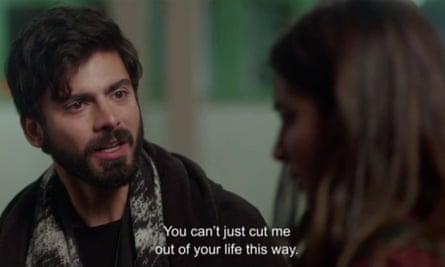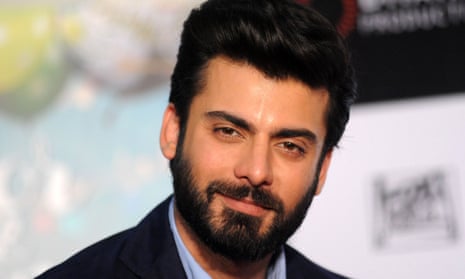Mumbai police have set up a hotline and pledged extra security for any cinemas that choose to show an upcoming Bollywood blockbuster starring a Pakistani actor, as ultranationalist groups threaten to disrupt screenings with violence.
As the potential for renewed military conflict between India and Pakistan appears to ebb after a series of violent incidents last month, the battle has moved to the countries’ entertainment industries, with Pakistan announcing a total ban on Indian television or radio content on Thursday.
The film, Ae Dil Hai Mushkil, is a romantic drama scheduled for release during the Diwali holiday later this month. It stars Fawad Khan, a popular Pakistani actor whose first foray into Bollywood eight years ago coincided with the deadly Mumbai attacks.
Khan pulled out of promotional events for Ae Dil Hai Mushkil in September after 19 Indian soldiers in Kashmir were killed by militants. India accuses Pakistan of having sponsored those responsible. Pakistan has denied any involvement.

But Khan’s decision to stay home has not stopped a far-right political party in Maharashtra state, the home of Bollywood, from targeting the movie. The MNS party warned that it would block any cinemas from screening the film and vandalise those that did.
Mumbai police announced on Thursday they had arrested 12 MNS party workers on charges of threatening to disrupt public order, and would hold them until mid-November, after the film’s release. They will also provide extra security for cinemas.
The film’s director, Karan Johar, tried to cool tempers this week by releasing a video promising “not to engage with talent from the neighbouring country” in future.
“There are over 300 Indian people in my crew who have put their blood, sweat and tears into my film,” he said. “And I don’t think it’s fair to them to face any kind of turbulence on account of other fellow Indians.”
The Indian union for actors and film technicians has already declared a ban on Pakistanis being employed in India’s £1.3bn movie industry.

Johar has also brought his peacemaking efforts to Delhi, on Thursday meeting India’s home minister, Rajnath Singh, who reportedly agreed to help secure the safe release of the film.
That has not perturbed the head of the MNS party’s film wing, Amey Khopkar, who maintained: “We will not allow the film to be screened in a single screen and multiplex. Reality has dawned late on the producer.”
The same group also set a 48-hour deadline for any Pakistani artists to leave the country after the September attack or be “pushed out”, prompting at least two singers to cancel their performances.
On Thursday the Pakistan media regulator announced that Indian television and radio content, already restricted to 86 minutes’ screentime a day, would be banned completely from Friday.
Indian film and television was banned for 43 years in Pakistan up to 1998, during decades of tension between the south Asian neighbours after the end of British rule and partition in 1947.
The ban, like the 86-minute restriction, was routinely flouted, and illegal copies of Indian films and serials are widely sold across Pakistan.
